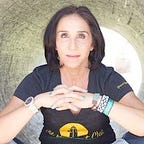Grief
In the work I do with people and their dogs there is one thing that never gets easier. That moment when the dog’s time on this earth is done and they get to be escorted to what most of you may know. It’s the #RainbowBridge.
It is a lot of things, this liminal space, and the lessons it can offer when it comes to the world of business are powerful.
What does a magical space related to the passing of pets have to do with the world of business and communication?
Simple.
Compassion. Connection. Empathy.
There are some who have never had a pet and just don’t understand the devastation that folks feel at the loss of that pet’s life. It’s not in their life experience. If that’s you, that’s okay. Truly. Hopefully you’ll read on anyway, because there’s something here that will serve you.
Yesterday a long-time friend and client of The Hydrant Club made the decision to release his French Bulldog from suffering brought on by cancer. For the last year he’d gone to heroic lengths and amazing treatments to beat the cancer back, giving the dog more than a year of healthy, good, quality life that none of the doctors expected. About a week ago, his pup, Gaston, began getting picky about eating (a rarity) and over the weekend stopped eating altogether. It’s one of the first signs a vet will ask — is the dog eating or drinking water. When they cease to do one or both, it’s often a sign that things are really bad.
A set of scans done on a vet visit on Sunday revealed that the lungs were now pretty seriously involved, along with new, aggressively advancing growths. The vet’s assessment — there wasn’t too much time left and the end would be a “respiratory event”, unless the pup’s owner chose humane euthanasia first.
The next 24 hours were intense, grueling and difficult. Making that choice is never easy, even with the pup in increasing discomfort. Getting to the point of being able to let go, even harder.
The choice made, my friend found an in-home service — a vet who comes to the home and, after getting the pet comfortable, eases that last leg of the journey until they are at rest. The woman who came is nothing short of an angel in my books. She’s a trained and long-time veterinarian who, a few years ago, opted to shift part of her time in veterinary care to this incredibly powerful stage of pets’ lives.
Starting the moment she entered the home she calmed the space. She spent the first moments there just meeting the pup, the people present and being present in the space. No directions. No details. Just BEing. From there she began to explain the process, as the in-home process differs a bit from how it works at a hospital or clinic. She walked through the explanation that it was about first getting Gaston to a calm and resting state, free of anxiety or any sense of stress. It would not be until he had totally calmed and was lucid but resting that she’d administer the final cocktail that would ease him to the end.
When it was done she stepped outside to give the owner privacy and I, along with a work colleague who also had come to support our friend, did the same. While out there, I asked this vet how she’d come to this specialty. It’s not like one goes to vet school and emerges with the plan to support animals at death. Rather it’s about preventive care and ensuring healthy lives. She said she’d done that — working at a local vet clinic for a number of years. When the owner of that practice sold and eventually began an in-home hospice, palliative care, humane euthanasia service, he asked her to join him. She demurred, instead staying with regular vet practice for a while and then branching out to write for a veterinary journal and extend her expertise in other ways. After the pandemic hit in 2020 and all of life shifted tectconically, she began to think about her work in a different way and reached out to that old boss and joined his practice.
It’s not just about the mechanics of navigating the process, it’s about the enormous responsibility of holding space for people in a time of deep grief and then serving as the one who then tends to that dearly beloved and just departed pet. It’s weighty stuff and to see the grace and elegance with which she navigated it, truly humbling.
When I arose this morning I started thinking about how holding space for others isn’t just about the catastrophic times — death, illness, loss. If we learned nothing else from the experience of the pandemic it’s that we as a species experience grief. It can be as simple as leaving a job or moving to a new city. It can be friendships that end for no real reason other than the people change. It can be old ways disappearing and getting used to new ones. And of course, it can be the obvious.
Whatever the catalyst, grief isn’t something to stuff, ignore or just pass by. It’s something that gets to be experienced; and it’s not just for those in the direct line of fire of the loss. Anyone and everyone around have a role to play in holding the space so that the experience can be had.
With the colossal issue of fear driving so many C-suites and trickling down through organizations, it’s no wonder that there’s no real graceful way to address grief.
Acknowledging its existence and just being still. That’s a good start.
